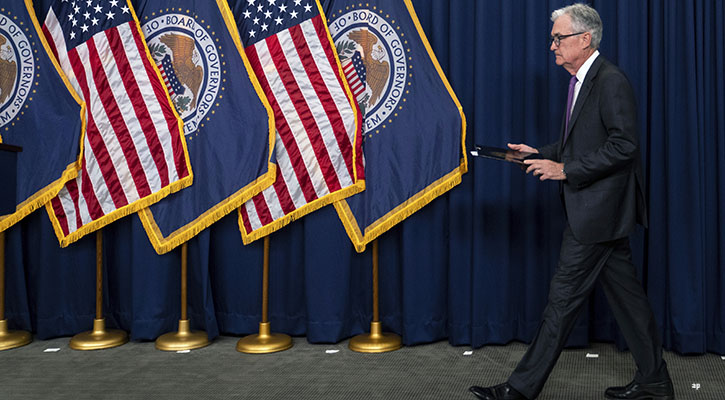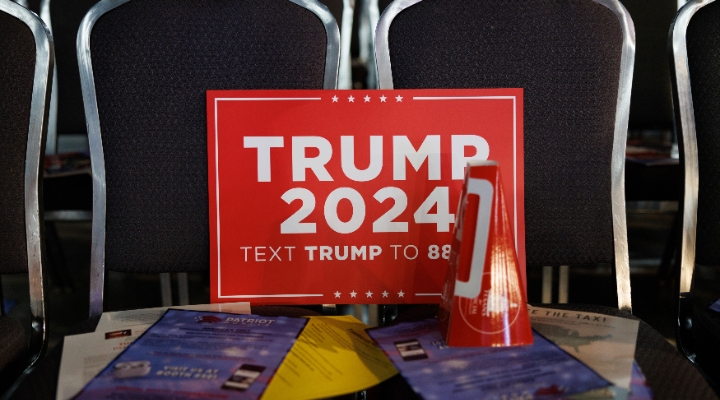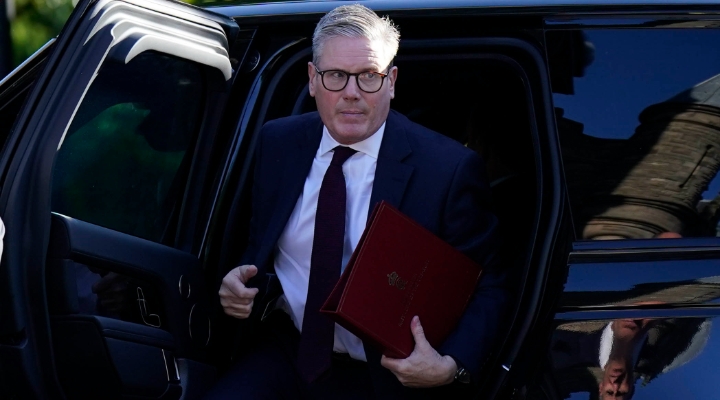
The possible re-election of Donald Trump is as important to markets and geopolitics as any interest rate decision in 2024. But you could be forgiven for thinking asset managers' outlook documents for next year are somewhat light on the matter.
In the various asset management publications we surveyed, Trump analysis runs to a total of hundreds of words – versus the many thousands devoted to inflation and monetary policy.
Nor did any one document mention the immediate and obvious impact of a Trump re-election on environmental policy, an arena asset managers have found themselves in for the last few years under the guise of ESG investing.
US Special Status Under Threat
This is not to say the ramifications of another Trump term haven't been acknowledged at all. The success of US equity investors during Trump's first term will humble anyone who thinks another one wouldn't result in more stock market fireworks. But commentators still urge huge caution about the negative consequences.
"The 2024 US election could be a watershed moment geopolitically, as further aid to Ukraine hangs in the balance along with foreign policy unpredictability and rule of law," says Ron Temple, chief market strategist at Lazard Asset Management.
"Many investors assume the US will always have the reserve currency of the world and enjoy the 'exorbitant privilege' that comes with such status, given the absence of obvious alternatives today. I would caution against such presumptuousness.
"The US derived its reserve currency and safe-haven status by proving the resiliency of its institutions, developing a democracy that was largely a question of shades of grey rather than extreme binary choices, and through consistently applied rule of law.
"The US also benefited from the absence of viable alternatives after World Wars I and II decimated competitors' economies. Increasingly, consumers, companies, and countries have more choices. No-one should presume the US is entitled to exceptional status without earning it."
Will There be a Rush to Safe Haven Assets?
In hindsight, we now know Donald Trump was always going to be a "stock market" president. Indeed, be it campaign rallies or at the presidential podium, the former reality star and real estate tycoon always made the performance of US equities a central part of his argument that he was making America great again – even if he never said the word equities.
Throughout his first presidency, the Dow Jones industrial average rose by around 56%, a rise driven at least in part by the Trump administration’s rhetoric on tax cuts and deregulation. The annualised Dow return of 11.8% investors will have achieved under president Trump was "the best for any Republican president since Calvin Coolidge in the Roaring Twenties", LPL Financial chief market strategist Ryan Detrick has said.
This is some way off what the most pessimistic commentators predicted in 2016. Today, the world in some ways looks very different, but a fresh Trump term could seek to replicate this formula once more to the benefit – and detriment – of specific sectors.
"Under a new Trump presidency, sectors like traditional energy may benefit from shifts in tax and regulatory burdens, while big tech could face heightened scrutiny," Swiss private bank UBP says in a note on the situation.
Fiscal Expansion?
But what of fixed income and bond yields? During this current inflationary era they have become a mainstay of successful defensive portfolios. Over the last two years, the spectre of US inflation has meant the US Federal Reserve has been right at the forefront of public discourse about control over the economy. Yesterday, US Treasury yields fell when the Fed signalled it would cut rates in 2024.
This is not to say there have not been political and financial obstacles Joe Biden has had to overcome. This year, the President was forced to reckon with both sides of Congress over his government's debt ceiling. Trump 2.0, and any accompanying expansionary fiscal policy, promise their own ramifications.
"Late next year, US elections could result in a more fiscally expansionary outcome, another potential catalyst for higher bond yields," says Goldman Sachs.
"Unchecked fiscal spending, as well as increasing deficits further, could trigger a resurgence of inflation, challenging the Fed's control over the economy," UBP adds.
"One option Congress will face at the end of 2025 is a decision on the Trump tax cuts," Bank of America says. "If Congress is serious about correcting the increasingly concerning trajectory of debt-to-gross to domestic product, it would not extend the Trump tax cuts.
"While this would not be enough fiscal adjustment to correct the current trajectory, it will likely be the first real test of Congress' resolve around the increasingly unsustainable fiscal path."
Trade Wars, the Middle East
And geopolitically, where Biden has been a part of efforts to support Ukraine and manage tensions between China and Taiwan, things may now change dramatically. Not one document mentions the Middle East either, where the Biden administration is attempting to convince the Netanyahu government to temper its military operations in Gaza. One only needs a sliver of imagination to think what Trump may say about it in office – let alone do.
"Geopolitically, tensions between the US and Europe may [also] resurface, with implications for the Russia-Ukraine war," UBP says.
"Tightening restrictions on China would also invite retaliation and rekindle the trade wars between the two countries. On the political front, a Trump administration could accelerate the realignment of the global geopolitical order with the rise of the 'global south' and a shift of power from the historical leaders to emerging countries in Europe and the Middle East."
The result? A rush to gold, perhaps. Prices have already hit record highs in recent weeks.
"Overall, such destabilising policies may create an opportunity for gold to return as a long-term anchor of wealth preservation in investor portfolios," UBP says.
Investors Uncertain
But there is perhaps another reason why this year's investment outlook documents look Trump-lite. Investors have become used to the word "uncertainty" in recent years – be it around the pandemic, or perhaps political dislocations like Brexit. But if there is one individual whose election heralds more uncertainty than any other event it is probably The Donald.
As such, asset managers legitimately may not feel able to make calls on what they feel is likely to happen. As a blog from the London School of Economics argued in 2016:
"The EU economy is not showing signs of improvement and many Eurozone countries are suffering under austerity," it said.
"It is in this climate that the Italian referendum next month and the French and German elections in 2017 will take place.
"Trump will cast a shadow over these electoral contests. He has shown that unrestrained rhetoric, narcissism and attacks on the weakest sections of society can be the most profitable electioneering tools."
This was an early – and damning – review that now feels achingly familiar. The UK and European parliaments will both host elections next year, and the performance of both the UK economy and the Eurozone economies has left, shall we say, a lot to be desired.
But there are zero guarantees. Literally anything could happen. If uncertainty is the only certainty, investors probably need to buckle up, because the next four years could be wild.



























